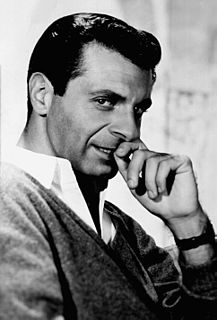A Quote by Wendell Berry
Explanation changes whatever is explained into something explainable.
Quote Topics
Related Quotes
Anyone who appears to be triggered out of watchfulness and into action by your appearance must be explained. Anyone observing you carefully must be explained. Anyone whose behavior seems to be geared to yours must be explained. If the explanation does not satisfy you, be ready to take appropriate defensive action.
I don’t like the idea of “understanding” a film. I don’t believe that rational understanding is an essential element in the reception of any work of art. Either a film has something to say to you or it hasn’t. If you are moved by it, you don’t need it explained to you. If not, no explanation can make you moved by it.
We have this desire for everything to be explained to us. But if you go through your daily actions, very little ends up having a written-down explanation for why things happen, or why people do specific things. So it made sense to me to reflect the human condition that not every action has an explanation. We act, and then later maybe come to an understanding about it, or maybe not.
Like most young physicists, when I was a kid enraptured with physics, I thought, "Everything can be explained by the theory of the atom!" But as I've gotten older, and I look at the world, I think there's a lot of ways in which that kind of building up from the smallest building blocks doesn't actually account for the world. As I've gotten older, I've also become sensitive to the ways - to all that is not amenable to explanation. Things that, even if you had an explanation, what good would it be?
Since my moral system rests on my accepted version of the facts, he who denies my moral judgments or my version of the facts, is to me perverse, alien, dangerous. How shall I account for him? The opponent has always to be explained, and the last explanation that we ever look for is that he sees a different set of facts. Such an explanation we avoid, because it saps the very foundation of our own assurance that we have seen life steadily and seen it whole.






































